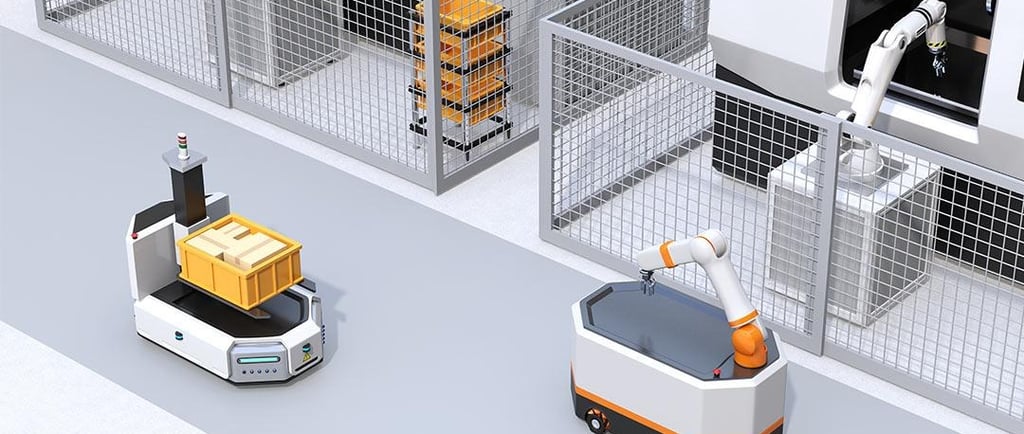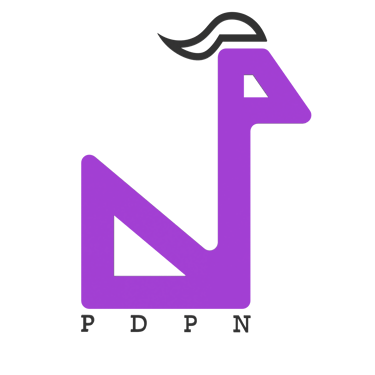Getting Started with ROS 2
Your beginner-friendly guide to ROS 2 and why it matters in modern robotics
ROS-ROBOT OPERATING SYSTEM
6/9/20252 min read


Introduction
Robotics is evolving fast — and so is the software that powers it. One of the most important tools in the robotics world is ROS (Robot Operating System). If you're serious about building intelligent robots, it's time to explore ROS2, the next-generation framework for robot development.
In this blog, we’ll walk you through:
What ROS2 is
Why it matters
Key differences between ROS and ROS2
How to get started with ROS2 (even if you're a student or hobbyist)
What is ROS2?
ROS 2 (Robot Operating System 2) is an open-source framework that helps developers build modular, scalable, and real-time robotic applications. It's not an operating system in the traditional sense, but a middleware platform that provides tools, libraries, and conventions to build complex robots efficiently.
Think of ROS 2 as the "Android for Robots" — it handles communication between sensors, motors, algorithms, and user interfaces so you can focus on innovation, not plumbing.
Why ROS2 Over ROS1?
ROS1 was revolutionary, but it had limitations in real-time processing, security, and multi-robot systems. ROS2 fixes those and brings modern features like:
Real-time capabilities
Multi-robot communication support
Cross-platform support (Windows, Linux, MacOS)
Improved security & reliability
Better support for embedded systems and industrial robots
ROS2 Features that You’ll Love
DDS (Data Distribution Service) for robust, low-latency messaging
Launch system for better node control
Component-based development (reusable modules)
Support for microcontrollers via micro-ROS
Simulation tools like Gazebo and RViz2
How to Get Started with ROS 2 (Step-by-Step)
1. Install ROS2
Visit https://docs.ros.org/en/jazzy/Installation.html for instructions based on your OS (Ubuntu is recommended).
2. Learn ROS2 Basics
Start with beginner tutorials:
Creating nodes and topics
Understanding publishers/subscribers
Writing your first Python or C++ ROS2 package
3. Try Simulation
Install Gazebo and control a virtual robot. It's a great way to learn without hardware.
4. Connect with Hardware (Optional)
Test with an Arduino, Raspberry Pi, or Jetson Nano if you have one.
5. Join the Community
Explore ROS Discourse, GitHub repos, and forums. You’re never alone!
Who Should Learn ROS2?
Engineering students working on robotics projects
Educators setting up robotics labs
Makers & DIYers looking to build intelligent robots
Startups and researchers developing industrial or service robots
What’s Next?
At PIDPEN robotics lab, we’re building a roadmap to help students learn ROS2 step-by-step — through kits, tutorials, and practical workshops. Want to be part of the future of robotics?
Final Thoughts
ROS2 is the future of robotics software — powerful, flexible, and ready for real-world robots. Whether you're a student, educator, or tech enthusiast, learning ROS2 now will put you ahead in one of the fastest-growing tech fields.
Stay tuned for our upcoming ROS2 Bootcamp!!
Copyright © 2026 PIDPEN robotics lab. All rights reserved.
Get in touch
+91-75 74 0505 74
info@pidpen.com
Made with 💙 in Bharat
1st Floor, "Amrut", Opp. Samarpan complex, Bortalav Rd., Bhavnagar, Gujarat - 364003
